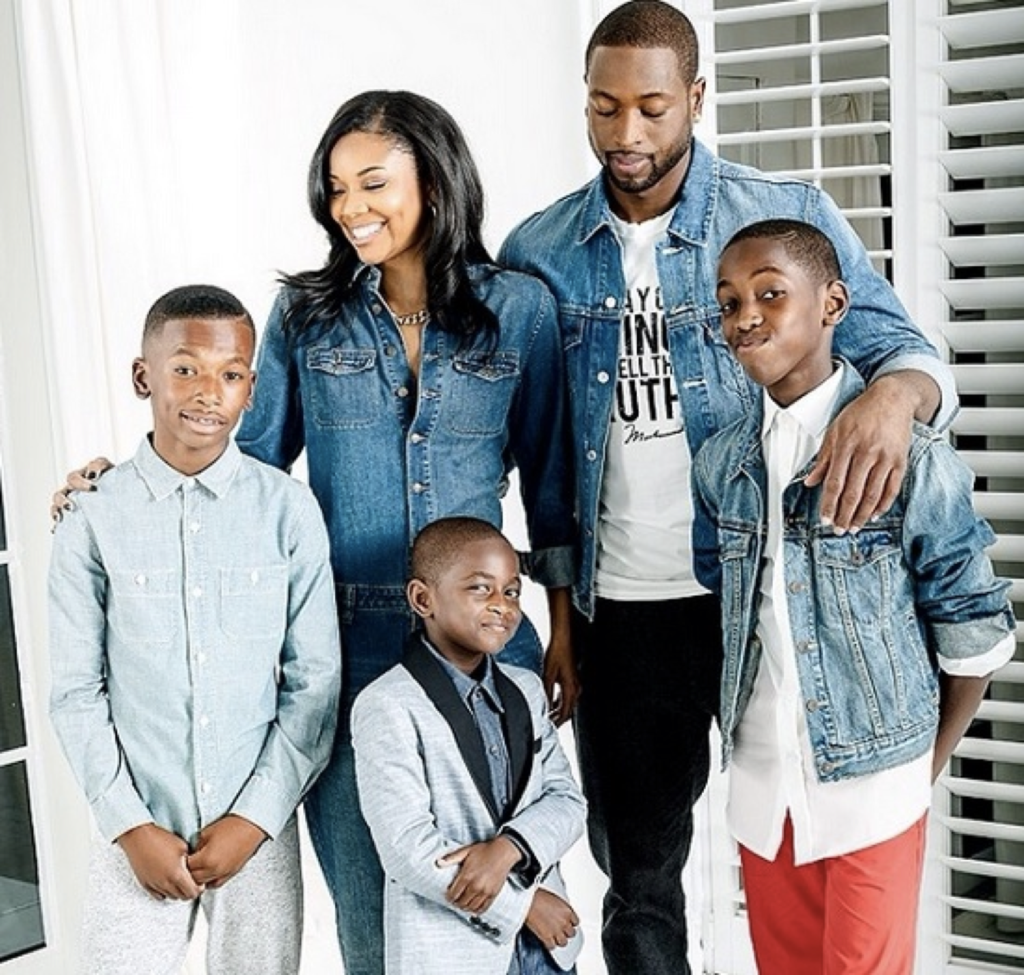
Being Mary Jane star, Gabrielle Union has been showcasing her love and #RelationshipGoals and love all over instagram with hubby NBA star Dwayne Wade, but little did we all know behind the scenes she had been suffered multiple miscarriages in attempted to have a baby.
In her book We’re Going to Need More Wine Union, who married Wade, now of the Cleveland Cavaliers, in 2014, exclusively told People that she had “never wanted kids. Then I became a stepmom, and there was no place I’d rather be than with them.” Wade, 35, has custody of his two sons with ex-wife Siohvaughn Funches — Zion, 10, and Zaire, 15 — and also is raising a nephew, Dahveon Morris, 16. He additionally has a son, Xavier, 3, being raised by a former paramour, Aja Metoyer.
“I have had eight or nine miscarriages,” Union, 44, writes in the book. “For three years, my body has been a prisoner of trying to get pregnant — I’ve either been about to go into an IVF cycle, in the middle of an IVF cycle, or coming out of an IVF cycle.”
In Vitro Fertilization or IVF is an assisted reproductive technology (ART) commonly referred to as IVF. IVF is the process of fertilization by extracting eggs, retrieving a sperm sample, and then manually combining an egg and sperm in a laboratory dish. The embryo(s) is then transferred to the uterus. Other forms of ART include gamete intrafallopian transfer (GIFT) and zygote intrafallopian transfer (ZIFT).
But even after enduring three years of failed IVF cycles and being constantly bloated from the hormones, Union writes that she and Wade “remain bursting with love and ready to do anything to meet the child we’ve both dreamed of.”
And that is no easy task, especially emotionally.
Many women form an attachment to their baby early on in the pregnancy, particularly if they've been trying to conceive for some time. So after a miscarriage, they're likely to go through a period of mourning and possibly experience the same stages of grief that can accompany the death of a loved one. The stages are:
1. Denial (a refusal to believe what has happened).
2. Anger (blaming yourself or others for the loss).
3. Bargaining (striking a deal with yourself or God to have things return to the way they were).
4. Depression (feeling listless, tired, despondent, guilty, punished, and/or as if there's no pleasure or joy in life).
5. Acceptance (realizing that life has to go on, and regaining your energy and goals for the future).

A common misconception is that infertility doesn’t exist in the Black community, where we are often stereotyped as super-fertile and more in need of birth control than infertility care. This portrayal is both inaccurate and unfair.
You may be surprised to know that infertility rates have increased for Black women over the past several years, while they have decreased for White women at the same time. Although Black women are more affected by infertility,...
... we are less likely to ever receive infertility treatment. In addition, Black women seeking infertility treatment usually wait longer before seeing a fertility specialist, have more tubal disease, more fibroids and are more likely to be overweight than women of other ethnicities.
Union is constantly is reminded of her struggle each time she’s asked by both family and strangers alike when she’s having kids.
“For so many women, and not just women in the spotlight, people feel very entitled to know, ‘Do you want kids?'” Union says. “A lot of people, especially people that have fertility issues, just say ‘no’ because that’s a lot easier than being honest about whatever is actually going on. People mean so well, but they have no idea the harm or frustration it can cause.”
Keep your head up Gabby!









